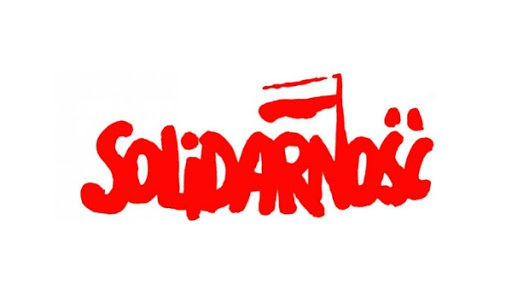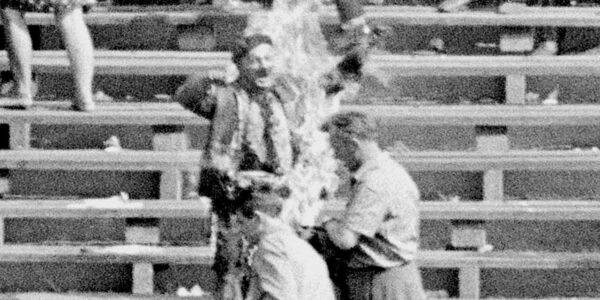By Beata Bruggeman-Sekowska
On October 19, 1984, Father Jerzy Popiełuszko, the chaplain of the Warsaw “Solidarity” movement and a human rights defender in the Polish People’s Republic, was brutally murdered by officers of the Security Service. His death shocked Poland and became a symbol of the repression inflicted by the communist regime on both the Church and the opposition. Exactly 40 years after these tragic events, his legacy as a martyr and fighter for freedom remains alive.
Chaplain of Solidarity and the Voice of Truth
Father Jerzy Popiełuszko was born on September 14, 1947, in Okopy, a small village in Podlasie. After completing seminary in Warsaw, he was ordained a priest in 1972. His spiritual path was inextricably linked to opposition against the communist regime. From August 1980, he became associated with the “Solidarity” movement, becoming one of its most recognizable chaplains.
During the strikes at the Warsaw Steelworks, Father Popiełuszko celebrated Masses for the workers and provided them with spiritual support. However, his activities were not limited to religious services. During the martial law imposed on December 13, 1981, he organized aid for individuals persecuted by the authorities, distributed foreign donations, participated in the trials of oppositionists, and held the famous “Masses for the Homeland” at St. Stanislaus Kostka Church in Warsaw’s Żoliborz district.
These Masses attracted thousands of people, not only from Warsaw but from all over Poland. In his sermons, Father Jerzy referred to the teachings of the Gospel, Pope John Paul II, and Cardinal Stefan Wyszyński. His message, expressed in the words: “Do not be overcome by evil, but overcome evil with good,” became a symbol of peaceful resistance against the repressive communist authorities.
Persecution and Provocations
Father Popiełuszko’s activities were a thorn in the side of the Polish People’s Republic authorities. They accused him of using the pulpit to propagate political ideas. He was repeatedly summoned for questioning, and his apartment was subjected to searches. The most notorious provocation occurred on December 12, 1983, when the Security Service planted explosives and firearms in his apartment, attempting to frame him for conducting terrorist activities.
Despite numerous attempts at intimidation, Father Popiełuszko continued his pastoral work, gaining increasing public support. The authorities viewed his influence as a threat to the regime. As a result, he became the target of operational activities by the Security Service, which ultimately led to his death.
Final Days and Brutal Murder
On October 19, 1984, Father Jerzy Popiełuszko was returning to Warsaw after celebrating a Mass for workers in Bydgoszcz. On his way back, near the village of Górsk, he was abducted by Security Service officers disguised as traffic police. His driver, Waldemar Chrostowski, managed to escape by jumping out of the moving car. Father Popiełuszko was brutally beaten and thrown into the trunk of a car.
Testimonies from his kidnappers, Grzegorz Piotrowski, Leszek Pękala, and Waldemar Chmielewski, revealed that Father Jerzy was repeatedly tortured. The murderers tied him up in such a way that any attempt to straighten his legs led to suffocation. Eventually, after brutal torture, he was thrown into the Vistula River from a dam in Włocławek. His body was recovered on October 30, 1984. It was weighed down with a bag filled with stones, and his hands were bound in such a way that any movement would tighten the noose around his neck.
Funeral and Trial
Father Jerzy Popiełuszko’s funeral, which took place on November 3, 1984, attracted hundreds of thousands of people, turning into a massive manifestation of opposition against the communist regime. Among the attendees were leaders of “Solidarity,” including Lech Wałęsa.
In the so-called Toruń trial, which began on December 27, 1984, three Security Service officers—Grzegorz Piotrowski, Leszek Pękala, and Waldemar Chmielewski—were convicted of kidnapping, torturing, and murdering Father Popiełuszko. Their superior, Colonel Adam Pietruszka, who was responsible for ordering the crime, was also convicted. Grzegorz Piotrowski received a 25-year prison sentence, while the other defendants received sentences ranging from 14 to 15 years. Despite this, the sentences were repeatedly reduced due to amnesties. As a result of these reductions, Piotrowski ultimately was released on August 16, 2001, after serving only 15 years. It is still unknown who made the decision to kill the priest or at what level the decision was made.
Legacy and Beatification
Father Jerzy Popiełuszko became a symbol of resistance against tyranny and the fight for freedom. His unwavering stance, courage, and dedication to truth earned him the status of a national hero. In 2010, he was beatified by the Catholic Church as a martyr for the faith.
His grave, located at St. Stanislaus Kostka Church in Warsaw, has become a pilgrimage site visited by hundreds of thousands of faithful. Father Jerzy’s message, rooted in love, forgiveness, and overcoming evil with good, continues to inspire many, both in Poland and around the world.
Forty years after his death, Father Jerzy Popiełuszko remains a symbol of freedom, human rights, and resistance against injustice.
image: public domain, more information: https://commons.wikimedia.org/wiki/File:Jerzy_Popieluszko.jpg?uselang=pl#Licencja



Follow Us!